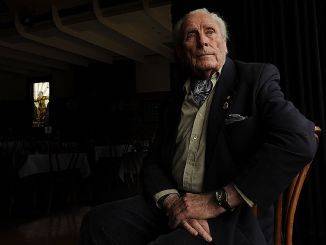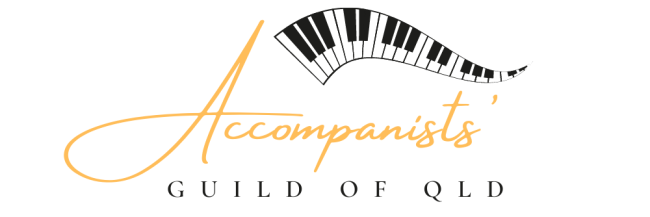
A Life of Accompaniment – not yet over!
My first attempts at accompaniment were made when I was about nine/ten years of age. My mother “sang” –chiefly drawing-room-ballads and, as a soprano, in the Central Methodist Church (more like a cathedral) in Westminster, London. To this early experience I owe much of my ability to sight-read.
When I was in school at primary level I became School Pianist. Why? I wasn’t the most able student pianist – but I could play what was required of me with far less advance notice and preparation than the others. My main memory of my primary school accompanimental life is being confronted by a teacher (male and not teaching music_ who asked me – aged about nine – whether I knew “Choppins’ Polinase”. I didn’t know “him” or “it”. However I learnt “it” and from then on played “it” for the school to march-out-of-assembly-on.
At secondary level, as a newly admitted member of the Lower Third, I found myself in competition with a “holy-of-holies Sixth Former” in playing for school assemblies and concerts/plays. Again, he could play more proficiently than I, but was a poor-sight-reader. So, I become school pianist. I do recall, however, that he was graceful in defeat – maybe because he really PLAYED the bugle in the Officers’ Training Corps Band whereas I could only spit into it! My main memory of my secondary school accompanimental life is beginning to play-over the morning hymn at Assembly only to discover that a string had broken (overnight) and lay across the entire string are of the piano. I stopped! The school guffawed! The Headmaster grinned! The Staff tried – with moderate success to achieve a reaction between a grin and a guffaw! I stood up – crimson in the face – and pulled the recalcitrant string into a remote corner of the piano sound board and played the hymn all over again! I must state that I have no recollection of any aftermath from my peers in the Lower Third or higher up. There may have been; they may not have been; I survived!
I then gave up tuition on the violin (my teacher used to strike my left-hand fingers with his bow to show his disapproval) and started the pipe organ. You can’t be an organist without being an accompanist. I became deputy-assistant-organist at a church.
At tertiary level I became organist and choir-master at Emmanuel College, Cambridge University, U.K. A vivid recollection is being examined by Boris Ord (who was the first King’s Choir Radio/TV conductor of the King’s Carols) and having to conduct a rehearsal of a psalm with the Emmanuel College Choir as part of the examination for appointment as Organ Scholar. The choir had been briefed to make deliberate errors in notation in order to see how the candidate/competitor would react. At one point the tenors (trust it to be the tenors!) sang a wrong note and then sat back – with Boris Ord – grinning. I didn’t know what to do so I fell back on the hackneyed, time-worn remark “Oh well, the middle note was right”. Apparently, they hadn’t heard it before. Maybe that is why I was appointed Organ Scholar.
The reality of being an organist means being employed in every possible aspect of accompanying and needs no description. There followed a gap – a large one – six and a half years of wartime military service. I saw and played an organ twice. Once for a military brigade religious service in Melton Mowbray (U.K.) and once at a cathedral church in Ranchi (Central India). At the latter the heat and humidity had caused corrosion of the keys and of much of pipe-work. I saw and played a piano twice – once, in 1940, to accompany a fellow officer who sang at a troop’s concert where we were busy earning our Defence Medals and again in a Hill Station in India, after WWII had ended, where I had – on my staff – three Italian P.O.W.s one of whom sang. We ended the occasion in tears – he from feelings for his homeland and I from frustration with my technique and the condition of the hired piano! After WWII life was all about catching up.
I returned to Cambridge – this time with a wife. The college was then strictly men only and women had to leave the college porter’s lodge by 10p.m. The reader will understand the puzzled looks from “men” seeing “women” off the premises at 10p.m. when they met up with a “man” and a “woman” being let IN by the porter. Somewhat later in history the Professorial Board had to include in the agenda of a meeting a decision as to where our clothes line was to be located – there being, by the, one daughter. (That year at the May Week Ball, was to be seen a “man” – later known as Lord Porter the famous scientist – dancing around with a baby’s woollen cap on his head. Nicked from our clothes’ line! In the flat below us lived the Professor of Classics who was a keen (non-performing) musician. Every Sunday, after Evensong, a few undergraduates would convene in his flat for “supper and music”. For me, this meant chamber music and accompaniment. The house, three storeys, on campus, was heated by an ancient coke-burning central heating system. The Classics Professor (a New Zealander) knew that I – on a scholarship and War Service Grant and with wife and child – could not afford the cost of heating. So, every Christmas, he sent us a present of a cheque which, by mere coincidence, equalled what we had to pay towards the cost of the central heating.
During our time at Cambridge my wife went to an Art Class somewhere in the town and met a woman, sister-painter, whose husband was the Headmaster of the local High School. He had a very good baritone voice – so the inevitable happened. We “chummed up” in performance which included any vocal music I had to write as part of a bachelor of music course.
After leaving Cambridge, we went to Winchester College which, at the time, had the highest academic record in the U.K. There I taught Modern Languages (French and Spanish), was Officer in charge of Training for the Combined Cadet Force (army, navy and airforce) and one of three organists and choirmasters (which included deputizing, when necessary, at Winchester Cathedral.) That reminds me of the occasion when, at night after hours, I became locked in the Cathedral. Up in the Organ Loft, one metre above the bones of King Ethelied contained in a 16th century coffer and with weird creaks and groans echoing throughout the nave, chancel, transepts, tombs etc. I climbed down the narrow circular staircase form the organ loft, looked around the tombs and into the choir vestry where the stone walls were wood-panelled. Right! That was where I would have to spend the night! Then I remember something I had heard about before- (grammar!). I returned to the organ, switched it on, pulled out the tuba stop, inserted a matchstick between two of the keys (I don’t remember which keys, though I like to think they were around the orchestral “A”) descended the spiral stairs and waited at a heavy, oak side-door. Sure enough-after a few minutes – pounding footsteps on stone outside, – the organist shouting through the door, I answering, more pounding footsteps, unlocking of the door by the Head Verger, I ascending the spiral staircase to the organ loft to push in the tuba stip, remove the matchstick, switch off power and lights, descend the spiral staircase and try to make a dignified and apologetic exit.
I enjoyed my/our time at Winchester from a professional and academic point of view. Climatically it was a very different story! Here was I, after a considerable period in what the U.K. calls “The Far East”, living in ancient stone surroundings, next to a river and adjoining water-meadows, with a genetically poor blood-circulation, having to put up with chilblains on knuckles and toes for almost half of every year. Not good for pianists and organists! So, when people ask “why did you come to Australia?” I have to answer “chilblains”.
When Sir William McKie, and Old Melburnian and, at the time, Organist and Master of the Choristers at Westminster Abbey, told me that Melbourne averaged eight hours of sunshine per day I was hooked! (I can’t say that I became entirely free of chilblains during the winters, however.) By a strange coincidence, when I telephoned my baritone “chum” to tell him that I was emigrating to Australia he answered “So am I” – and moreover we, both families, came to Australia on the same ship – I to be the Melbourne Grammar’s first Director of Music, he to e Master of Ormond College at Melbourne University. So our association, both social and musical, continued. Oh – and his daughter, Olivia (Newton John), achieved considerable fame in her own right.
During the next twenty years I had all the accompanimental activity I could possibly desire in school, in chapel, at the National Music Camps and at the occasional ABC engagements. I could write a book about this period of my life, but it would all be beyond the scope of this article.
Next move – Queensland. Why? Not because of chilblains but because, after taking a school orchestra on a performance tour of South East Asia, I felt a need for change and, after a period of twenty years, I thought Melbourne Grammar needed a change. Also, since WWII we had lived on campuses in houses belonging to our employers and it was about time we became more independent. My work at the Education Department and for the A.M.E.B. involved plenty of travel and I gave seven or eight pianoforte recitals in PNG as well as playing accompaniments/chamber music with two violinists and one flautist at concerts, recitals and for recorded broadcasts.
The organ I played only five times – twice in St John’s Cathedral for Education Department special services, twice in the Town Hall for School Speech Nights and once in the Concert Hall of the Performing Arts Centre for another School Speech Night. And sooooh! Here we are, back in Melbourne, for reasons of family (resident in Melbourne and Country Victoria) and, after nearly five years, no chilblains. Must be the beneficial effects of ducted heating.
Once a fortnight a local Education Consultant who also plays the ‘cello comes for an hour of playing and an hour of chat-and-whisky. Once a fortnight a former first violin in the M.S.O. comes for an hour’s “play” (violin, of course) and an hour’s tea-and-chat. A pianoforte trio is about to the formed. So, as I wrote to begin with a life of accompaniment of one kind or another – is not yet over!
D. Britton 20/04/04
